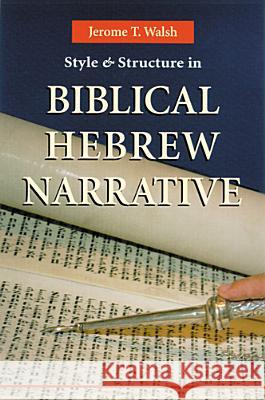Style and Structure in Biblical Hebrew Narrative » książka
Style and Structure in Biblical Hebrew Narrative
ISBN-13: 9780814658970 / Angielski / Miękka / 2001 / 224 str.
The pages of the Hebrew Bible are filled with stories - short and long, funny and sad, histories, fables, and morality tales. The ancient narrators used a variety of stylistic devices to structure, to connect, and to separate their tales - and thus to establish contexts within which meaning comes to light. What are these devices, and how do they guide our reading and our understanding of the text? "Style and Structure in Biblical Hebrew Narrative" explores some of the answers and shows scriptural interpretation can be a matter of style."
Part one of "Style and Structure in Biblical Hebrew Narrative" examines a wide variety of symmetrical patterns biblical Hebrew narrative uses to organize its units and subunits, and the interpretive dynamics those patterns can imply. Part two addresses the question of boundaries between literary units. Part three examines devices that biblical Hebrew narrative uses to connect consecutive literary units and subunits.
Chapters in "Part One: Structures of Organization" are "Reverse Symmetry," "Forward Symmetry," "Alternating Repetition," "Partial Symmetry," "Multiple Symmetry," "Asymmetry." Chapters in "Part Two: Structures of Disjunction" are "Narrative Components," "Repetition," and "Narrative Sequence." Chapters in "Part Three: Structures of Conjunction" are "Threads," "Links: Examples," "Linked Threads: Examples," "Hinges: Examples," and "Double-Duty Hinges: Examples."
"Jerome T. Walsh, PhD, is a professor of theology and religious studies at the University of Botswana. He is the author of "1 Kings" in the "Berit Olam (The Everlasting Covenant) Studies in Hebrew Narrative and Poetry" series for which he is also an associate editor.""











